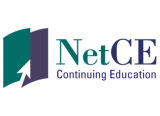Tick-Borne Diseases

Vector-borne diseases are spread by arthropods such as ticks, mosquitoes, or fleas. In the U.S., ticks are the number one vector responsible for transmission to humans. These tickborne diseases are challenging to diagnose as they often have non-specific symptoms.
Category
Format
- Self-study / Enduring
Credits
- 1.00 AMA PRA Category 1 Credit™
- 1.00 ANCC
The Coronavirus Disease (COVID-19) Pandemic

Widespread outbreaks of novel (new) coronavirus infection have occurred in each of the past two decades, and the current outbreak poses the third threat of a severe novel coronavirus epidemic on a global scale.
Category
Format
- Self-study / Enduring
Credits
- 2.00 MOC
- 2.00 Approved Continuing Education (ACE)
- 2.00 AMA PRA Category 1 Credit™
- 2.00 ANCC
- 2.00 Association of Social Work Boards (ASWB)
RSV in Infants: An Ounce of Prevention - Frankly Speaking Ep 353

Bronchiolitis caused by respiratory syncytial virus (RSV) infection in infants is common and can lead to hospitalization if severe. There are now two ways to prevent this: immunizing the mother during pregnancy or giving monoclonal antibodies.
Category
Format
- Podcast
Credits
- 0.25 AMA PRA Category 1 Credit™
Prevention of Medical Errors for Florida Physicians

This activity is specific to Florida statutes and reflects regulations effective March 2024 (MDs and DOs).
Category
- Medical Errors
- State Mandated Training
Format
- Self-study / Enduring
Credits
- 2.00 AMA PRA Category 1 Credit™
Lyme is Ticking: Updates on the Management of Lyme Disease and Other Tick-Borne Infections

The Infectious Diseases Society of America (IDSA) recently published new guidelines on managing Lyme disease in 2021, the first time these guidelines have been updated since 2006.
Category
Format
- Self-study / Enduring
Credits
- 1.00 ANCC
New and Emerging Therapies for Agitation Associated with Dementia Due to Alzheimer’s Disease (AD) An Interactive Learning Experience

Agitation is among the most common behavioral symptoms in patients with dementia, including Alzheimer’s dementia. It exacts a significant burden on patients because it is associated with not only greater morbidity and mortality, but also a faster cognitive and functional decline.
Category
Format
- Self-study / Enduring
Credits
- 0.36 AANP Contact Hours
- 0.36 AANP Pharmacology Contact Hours
- 0.50 AMA PRA Category 1 Credit™
NASCEND | Understanding Addiction

Category
Format
- Self-study / Enduring
- Video
Credits
- 3.00 AMA PRA Category 1 Credit™
- 3.00 ANCC
HIV/AIDS: Epidemic Update

Since the discovery of HIV, scientists have made major inroads in understanding modes of transmission, infectivity, and pathogenicity.
Category
- Infectious Diseases
Format
- Self-study / Enduring
Credits
- 5.00 AMA PRA Category 1 Credit™
- 5.00 ANCC
- 5.00 Association of Social Work Boards (ASWB)
Iowa: Chronic Pain Management Interactive Training Series
To streamline user access, Mocingbird provides a direct link to Iowa’s approved courses for Chronic Pain Management provided by the Centers for Disease Control.
Category
Format
- Self-study / Enduring
- Video
Credits
Infection Control: The New York Requirement

Healthcare professionals have the responsibility to adhere to scientifically accepted principles and practices of infection control in all healthcare settings and to oversee and monitor those medical and ancillary personnel for whom the professional is responsible.
Category
- State Mandated Training
- Pharmacology
Format
- Self-study / Enduring
Credits
- 5.00 AMA PRA Category 1 Credit™
- 5.00 ANCC

 Facebook
Facebook Twitter
Twitter LinkedIn
LinkedIn Forward
Forward